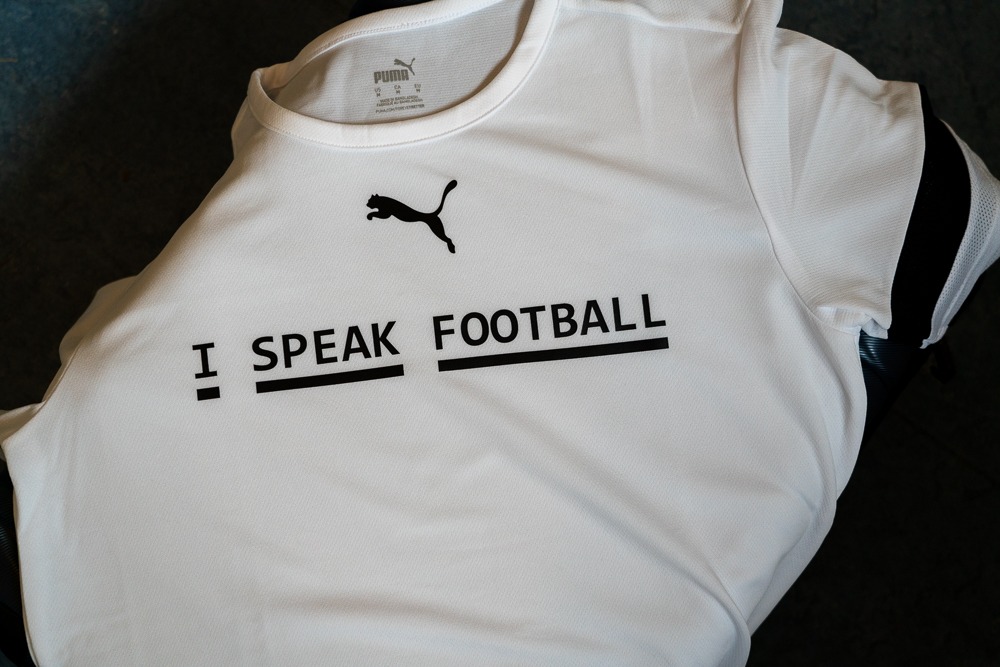Football is the world’s most popular sport, with an estimated 3.5 billion fans globally — nearly half of the planet’s population. Every four years, the FIFA World Cup draws viewership numbers that surpass those of any other sporting event, with over 1.5 billion people tuning in for the 2022 final. Football is more than a pastime; it is a deep cultural force. In Africa for example, over 70% of youth are engaging with the sport either through play or media.
Meanwhile, at the end of June 2024, an estimated 122.6 million people around the world have been forced to flee their homes, including nearly 43.7 million refugees. Another 4.4 million stateless people are denied nationality and basic rights like education, health care, and freedom of movement. At a time when more than 1 in every 67 people on Earth has been displaced, the work of the UN Refugee Agency (UNHCR) is more urgent than ever. In this context of growing displacement and political division, football offers something powerful: a universal language capable of building bridges. Across continents and cultures, football connects people through shared passion, teamwork, and respect — offering moments of joy, dignity, and belonging, even in the most challenging circumstances. Football like most sports in its intrinsic nature wants to choose unity over division.
For someone arriving in a new country or a temporary living habitat, the familiar sound of a football making its journey across a surface can be a brief moment of tranquility, hope or a flash of warmth across the soul in even the most difficult of conditions.
UNHCR has a long history in engaging in the sport for good world and Stephan Reynard, current Project Coordination officer and sport focal point, joins us on Bonito to chat about the use of sport at an organization that finds itself operating in turbulent times with numbers of displaced persons soaring due to a myriad of conflicts and economic difficulties.
Bonito: Thank you so much for joining us Stephen, always great to speak to someone from such a great organization like UNHCR.
Stephen: Thanks so much for having me on Bonito- what an exciting new platform in this space.
Bonito: Tell us Stephen about your own passion for football (or sports in general) and how you were captivated to explore the ways the game could bring about positive changes for society?
Stephen: I was encouraged to participate in sport from a young age. I played competitive football growing up in Canada all the way through high school and university in the United States. Since then, I have played on local football teams in France, Ireland, Togo, and Switzerland. Football has been a way for me to connect with people in each of the places I have lived.
I only started to think about the potential of sport to contribute to positive social outcomes when I was encouraged to set up a sport initiative with a community-based organization in Eastern DRC following my graduate studies. I spent a memorable year in the Ituri District initiating sport activities aimed at building peace between conflict-affected communities. Following that experience, I was hooked on the potential of sport to contribute to positive social change and, over the past 12 years, I have been lucky enough to have several opportunities to contribute to development and humanitarian objectives through sport in several countries and regions.
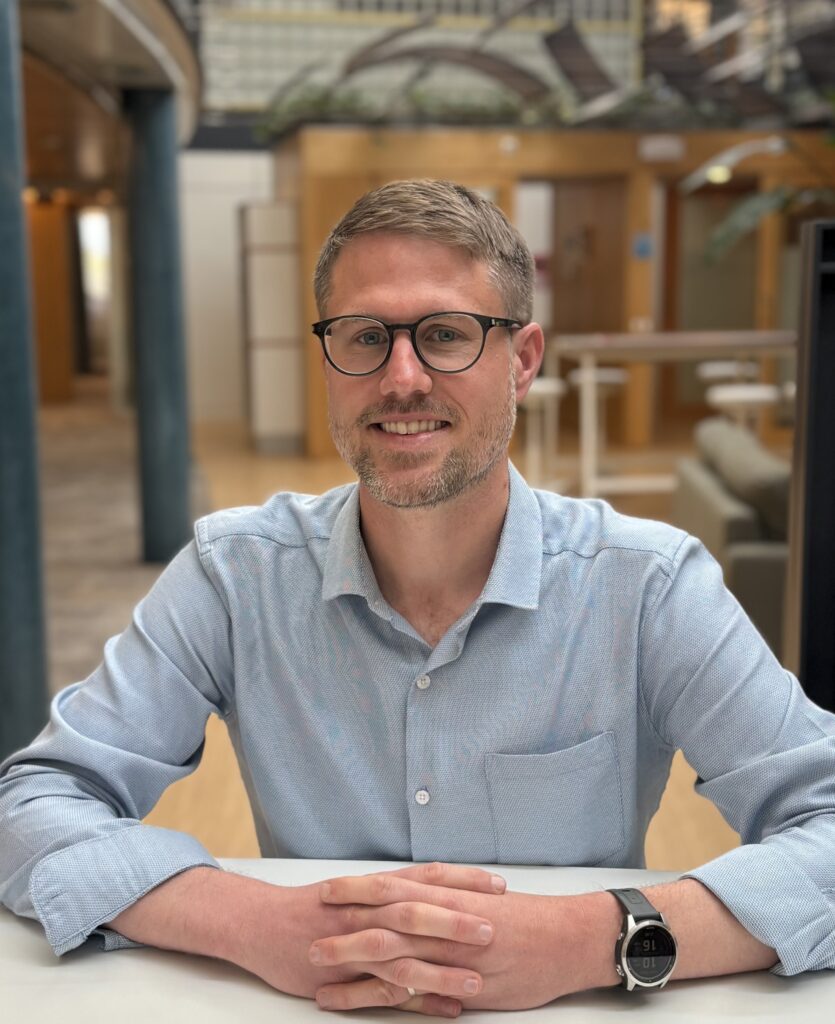
Bonito: Why do you think specifically football evokes such powerful sentiments with such a broad range of people all over the world?
Stephen: I suppose people are drawn to the spectacle of sport for various reasons. In terms of setup and requirements, football is a relatively level playing field. There are certainly inequalities in football, not only in terms of gender inequality, but also regarding the inclusion of persons with disabilities and refugees, who in many countries aren’t able to join local football teams and professional clubs. Nevertheless, the global popularity of football is most likely due, at least in part, to its accessibility.
In many areas of the world, local football teams embody the identity of a community. Some go as far as to liken football to religion, which is a helpful analogy in some ways. Beyond football, different sports captivate audiences, including cricket, basketball, netball, rugby, baseball, volleyball, and national or indigenous sport like chinlone (Myanmar), ecua-volley (Ecuador) and capoeira (Brazil).
Bonito: Can you give us a bit of an overview about how football and sport in general can be used as a tool to help refugee populations?
Stephen: UNHCR’s first-ever sport strategy, More than a Game (2022-2026), outlines five ways in which the sport ecosystem can support improved wellbeing and opportunities for people forced to flee.
- Sport and play-based programming: Access to regular, safe and protective sport activities contributes to protection outcomes for refugees and host communities, including psychosocial wellbeing, social cohesion and social inclusion.
- Elite Support: Providing opportunities for refugees with sporting talent to fulfill their potential through sport, educational or professional pathways supports refugee self reliance and livelihoods as well as increased advocacy opportunities. The most visible examples of this are the Refugee Olympic and Paralympic teams.
- Communication and advocacy: With global audiences in excess of 3 billion people for mega sporting events, sport provides UNHCR with a communication platform that can engage entirely new audiences in support of refugees. Sport also provides a familiar and compelling narrative that can break down cultural barriers and change perceptions and attitudes towards refugees.
- Sport diplomacy: Thanks to the popularity and influence of sport personalities who lend their names and platforms to the refugee cause, UNHCR is able to insert refugee issues in new sport and non-sport forums. Sport diplomacy can also support creating an enabling policy environment for refugees in and through sport with sport governing bodies and national governments.
- Resource Mobilization: The vast global for-profit sports industry – including clubs, sport brands, events, professional sportswomen and sportsmen, fans and others – presents significant potential for resource mobilization to meet ever-growing humanitarian needs. Attracting attention and funding from both sport and non-sport brands, the global sport scene can be a door opener to reach new potential partners and sponsors.
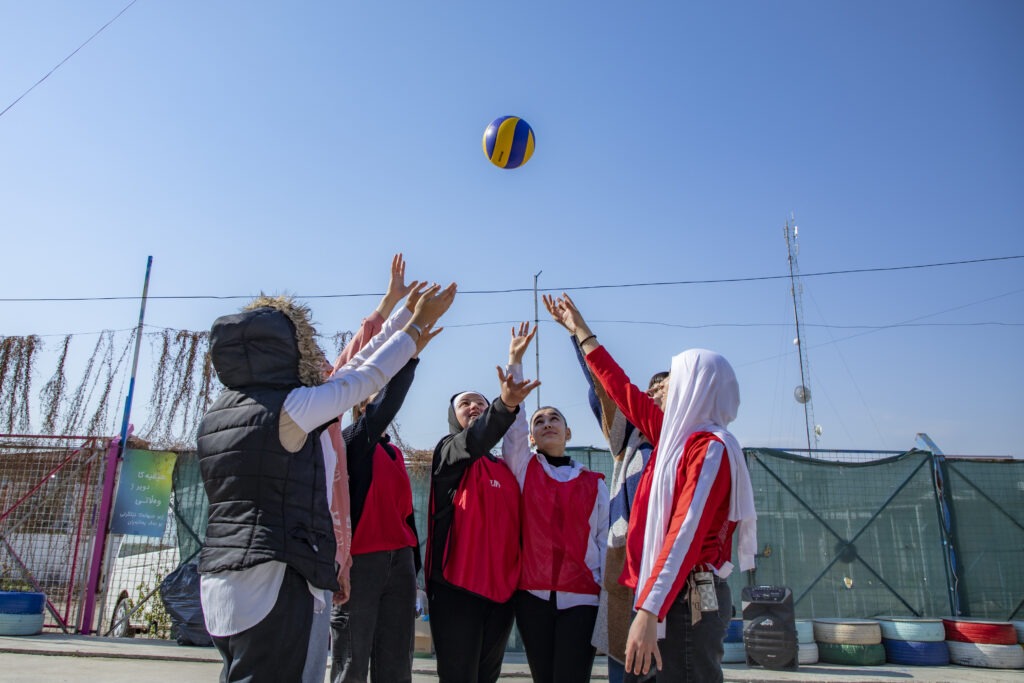
© UNHCR/Rasheed Rasheed-A group of Syrian refugee youth take part in sposts activities at UNHCR community centre in Darashakran camp in Erbil. ; Through its partners, UNHCR runs community centres in camps and urban areas, where refugee children participate in activities helping them learn, grow, and thrive
Bonito: So wonderful that UNHCR has its own sports strategy- things have come a long way in many organizations at the inter-governmental level when it comes to integrating sports into their policy. UNHCR has a long history in using sport as a tool for positive change. Can you tell us a bit about some of the projects currently ongoing using especially football as a tool for the protection of refugees?
Stephen: Indeed, when searching online for early examples of refugees participating in sport you may come across pictures of refugees taking part in sport activities in the years following World War Two. UNHCR has for many years worked with the world of sport to implement projects primarily aimed at providing access to sport and its associated health benefits. However, the development of a dedicated approach on sport as a means to achieve protection outcomes for people forced to flee and host communities is a relatively new innovation informed by the sport for protection toolkit (2018).
As part of the rollout of More than a Game, UNHCR and partners are currently implementing 15 multiyear sport for protection projects, many of which focus on football because of its popularity. These projects take place in various settings, including urban environments, rural settlements, and refugee camps).
Thanks to the generous support of key global sport partners, these projects are rolled out alongside core UNHCR programming such as community-based protection and gender-based violence programming, which create an enabling environment for refugees to not only survive, but to thrive.

© UNHCR/Adama Dianda-In the framework of World Refugee Day, sport activities have been organized with the participation of UNHCR, Government partners, operational partners together #withrefugees ; ©UNHCR/Adama Dianda
Bonito: What more do you think the football world can do to support refugees worldwide? In many European countries , football programs aimed at integrating refugees into European society are underway- what advice would you have for football clubs/coaches at the grassroots level who might not have extensive experience but are trying to undertake this task?
Stephen: Refugees and vulnerable people in general are facing unprecedented risks of social exclusion and violence, as they are sadly being targeted and villainized by an exclusionary brand of politics. Football clubs, associations, leagues and governing bodies have an incredible platform to communicate positive narratives, create pathways to educational and professional opportunities, and generate empathy towards people forced to flee. Football can become a safe haven for refugees in an increasingly unsafe world.
In terms of advice to grassroots organisations wanting to engage in this space, I would simply say that everyone starts somewhere, and to build on existing networks and experience in this space. There are many resources, platforms and initiatives aimed at promoting the inclusion of refugees through sport including the Sport for Refugees Coalition and the Integration of Refugees through Sport Network.
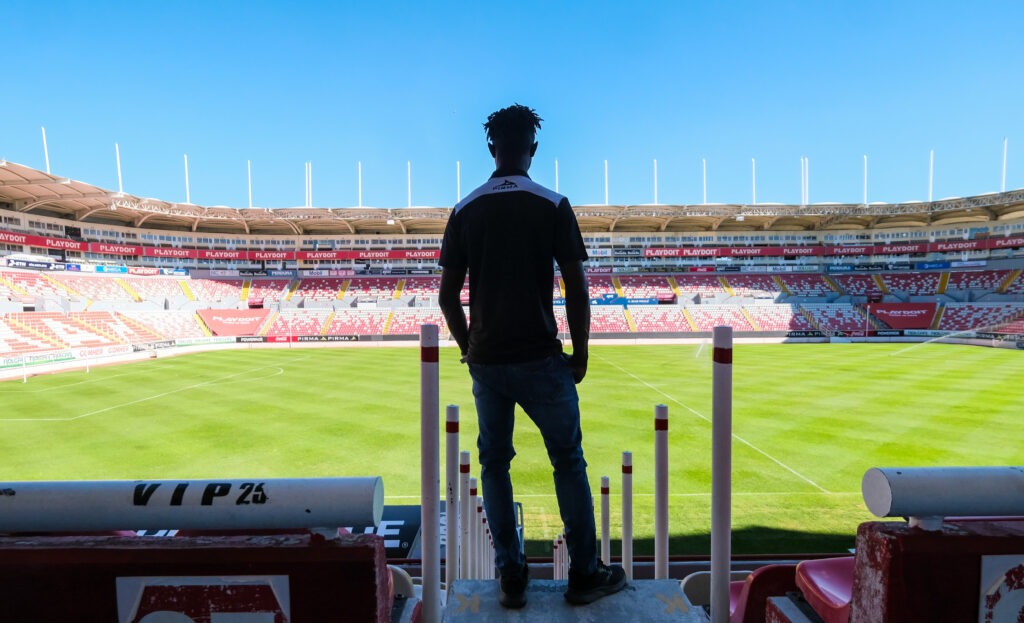
© UNHCR/Alejandra Leyva
Bonito: Is there any organizations that you partner with (preferably using football) who you would like to shine a light on for their excellent work with refugees?
Stephen: UNHCR operations work with over 190 partners on the implementation of sport for protection projects and activities globally. Instead of highlighting one or two of these organizations, I would like to highlight the Sport for Refugees Coalition, which includes 140 entities from the world of sport, civil society, public and private sectors who have made pledges to support the inclusion of refugees through sport. These organizations came together at the Global Refugee Forum in 2019 and again in 2023 to unite behind refugees and pledge commitments that contribute to the Global Compact on Refugees (GCR), which is an international framework for strengthened cooperation and solidarity with refugees and affected host communities. These commitments are articulated around five areas:
- Promote an enabling environment, including policy, that delivers access to safe sport
- Promote and provide inclusive, safe, sport and play-based initiatives
- Promote and provide opportunities for enhanced skills and pathways in and through sport
- Use targets communication, evidence and advocacy
- Strengthen partnerships and coordination efforts
For more information about the Sport for Refugees Coalition you can either write to contact@sportcoalition.org or use this contact form.
Bonito: Refugees are also facing an unprecedented level of xenophobism and any immigrant sentiment from many western countries. Organizations like Soccer Without Borders and Fútbol Más are running marvelous programs to help break down barriers. What can bigger football clubs and leagues do with their platforms to help protect these individuals who have escaped extremely difficult situations only to face new challenges in their destinations?
Stephen: Football clubs wield a lot of influence with their fan base and the communities that they serve. They can promote a welcoming environment for refugees not only within the confines of their stadia, but also in the wider community and beyond. They can engage their players on refugee issues and provide opportunities for refugees to access football and player development, professional and educational opportunities through football
Football leagues organize competitions, establish standards and rules, and promote the sport. They are also responsible for enforcing rules and regulations with football teams. They can address social exclusion in all its forms in football and engage with football supporter groups on creating safe and inclusive environments for refugees and vulnerable people in general.
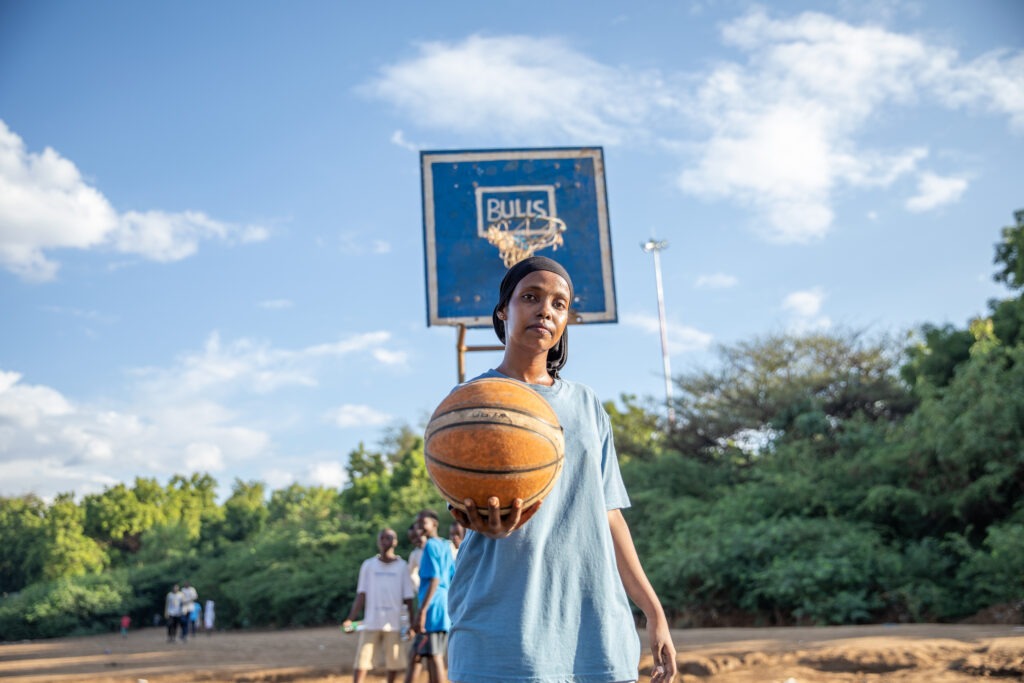
© UNHCR/Charity Nzomo-Saido Omar is a 25-year-old Somali woman with a love for basketball that goes far beyond the court. Joining the game in 2019, she quickly made her mark as the only Somali woman playing basketball in her community. Her story is one of resilience, courage, and the power of sport to bring people together and inspire change.
Bonito: Do you have a particular story you could share for us from your UNHCR and sport experience that truly touched your heart?
Stephen: I have had several moving experiences since joining UNHCR’s Sport Coordination Team, however, one encounter stands out. In 2023 I participated in a SportNet training in the Nakivale Refugee Settlement in Uganda as part of an FC Barcelona Foundation supported sport for protection project. One of the participants of the coaching programme, a refugee from the Democratic Republic of Congo (DRC) with a physical disability, shared with me his story of fleeing from the DRC and journey to the Nakivale Refugee Settlement. I was struck by his resilience and the fact that he had fled conflict and journeyed such a distance. I enquired how he was able to make the journey with a heavy hand tricycle, and he responded, “Different people helped me get here”. I found his response interesting as it is a reminder of the incredible resilience of people who are forced to flee their homes who overcome seemingly insurmountable odds to find protection and safety. It is also a reminder that we all need a helping hand in the face of adversity.
Bonito: Lets hope that humankind can find that shared need and will to both help other and to seek help when needed. Stephen its been such an honor to speak with you and find out more about the work you do at UNHCR- I cant think of a more important organization and so great to see that football has a place with your work.
Stephen: Thanks so much for the platform to share our work!
BIO
Name: Stephen Reynard
Organization: The UN Refugee Agency, UNHCR
Role: Project Coordination Officer (Sport)
Favorite Football (or sport) for good organization apart from your own: There are so many incredible organizations in this space. I have a lot of respect for people and organizations who work tirelessly to improve the lives of other people in challenging situations.
Favorite Football Club: Leeds United
Dream sport for good organization that you would love to collaborate with on a project: I would love to find more opportunities to work with refugee-led and women-led organisations interested in contributing to protection outcomes through port and play.


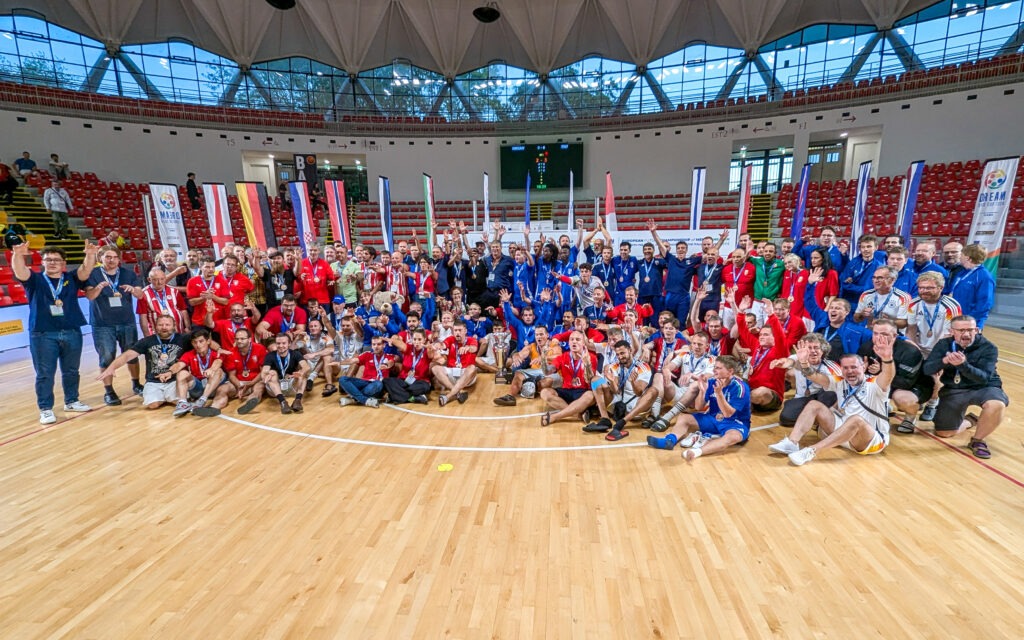
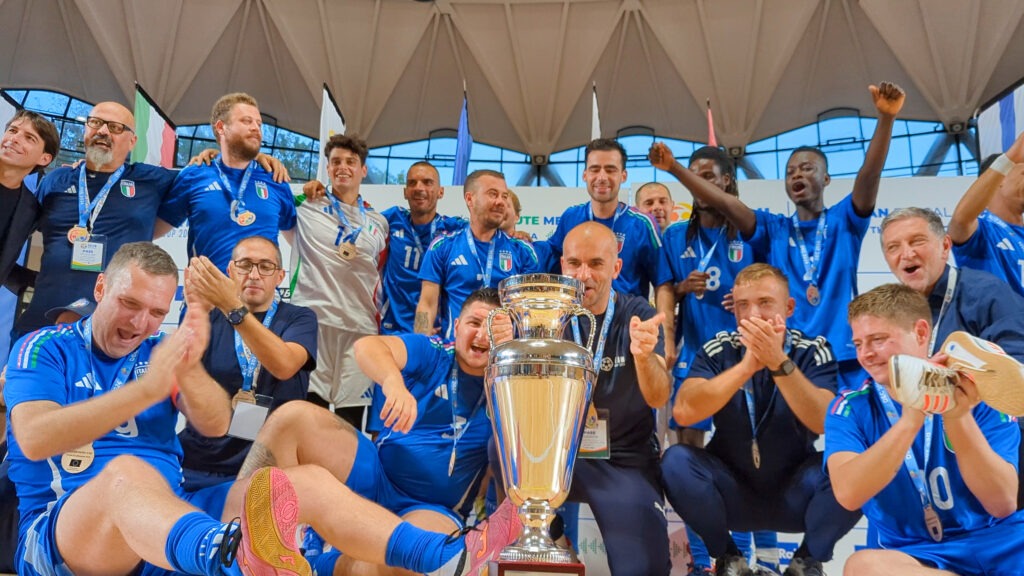
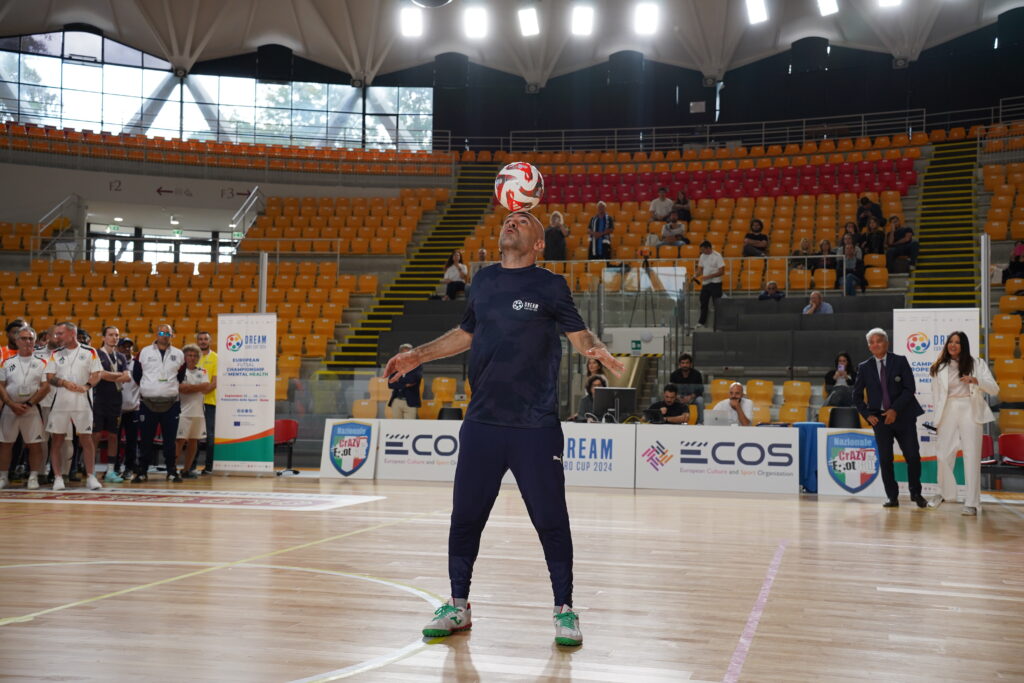
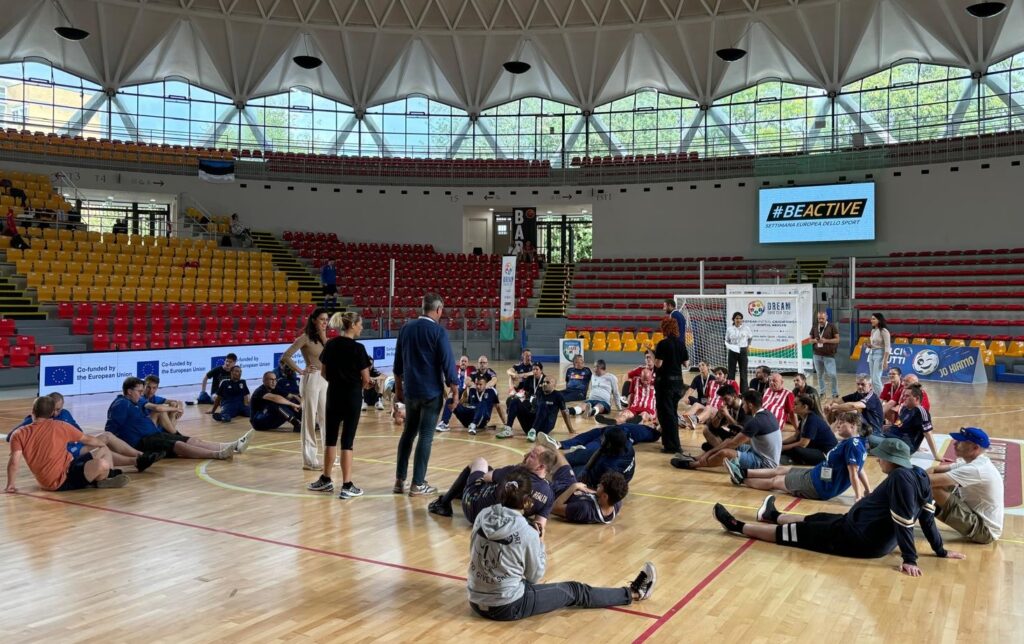

 Bonito: Djibril, thank you so much for joining us on this International Migrants Day to speak about your wonderful program. Can you share your personal journey and how did your passion for football inspire you to create the I Speak Football program?
Bonito: Djibril, thank you so much for joining us on this International Migrants Day to speak about your wonderful program. Can you share your personal journey and how did your passion for football inspire you to create the I Speak Football program?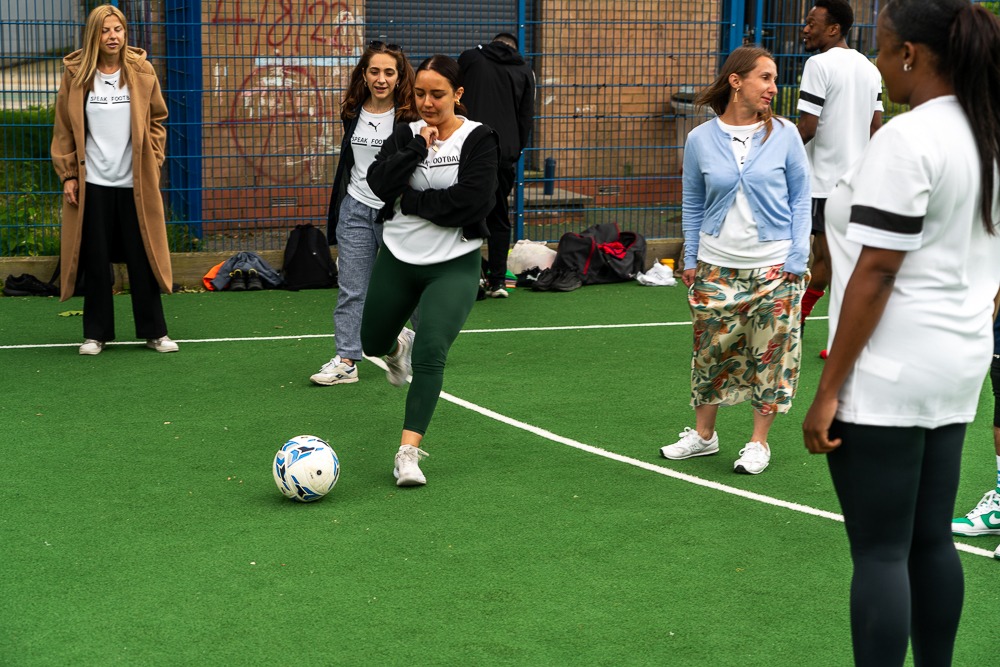 Bonito: How important is it for newcomers to have a safe and productive environment to learn the local language of their new country?
Bonito: How important is it for newcomers to have a safe and productive environment to learn the local language of their new country?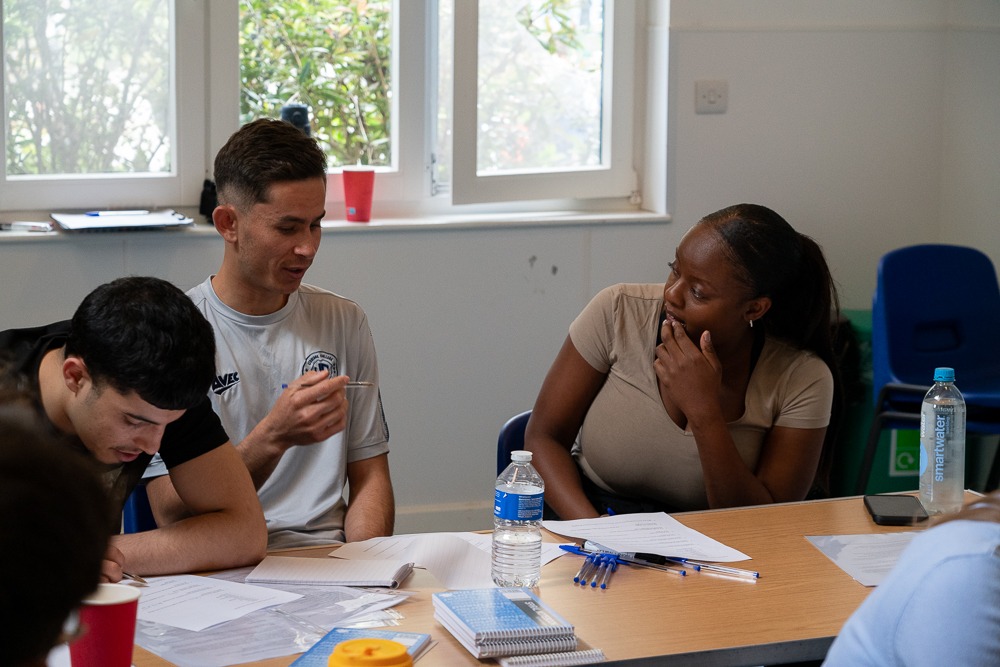 Bonito: The journey that many immigrants face in moving to their new countries often presents a tremendous strain on mental health- how does football help to improve that and to build further resilience going forward?
Bonito: The journey that many immigrants face in moving to their new countries often presents a tremendous strain on mental health- how does football help to improve that and to build further resilience going forward?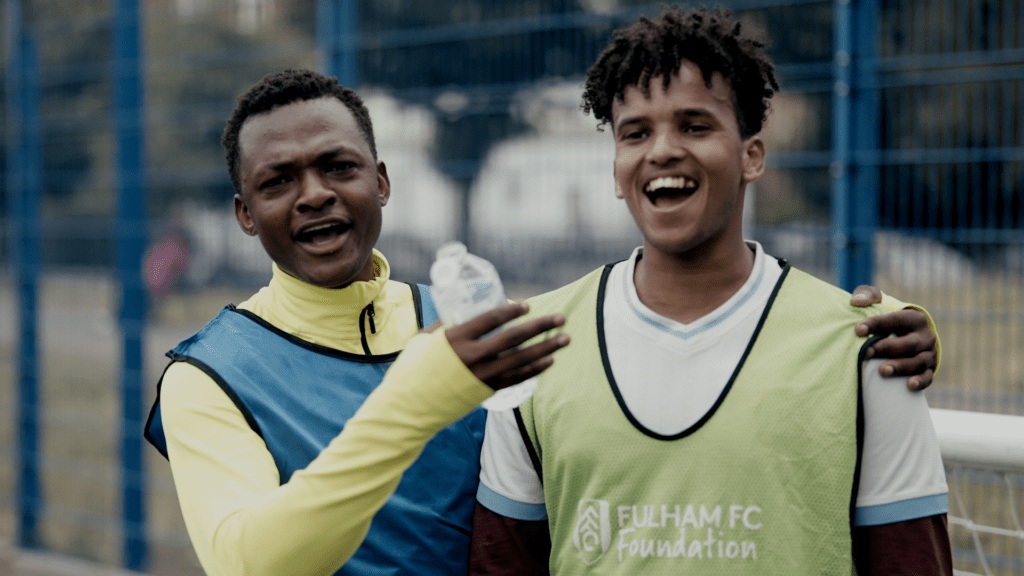 Bonito: Reflecting on your journey in football, is there a particular moment or experience that profoundly touched you and reinforced your commitment to this work?
Bonito: Reflecting on your journey in football, is there a particular moment or experience that profoundly touched you and reinforced your commitment to this work?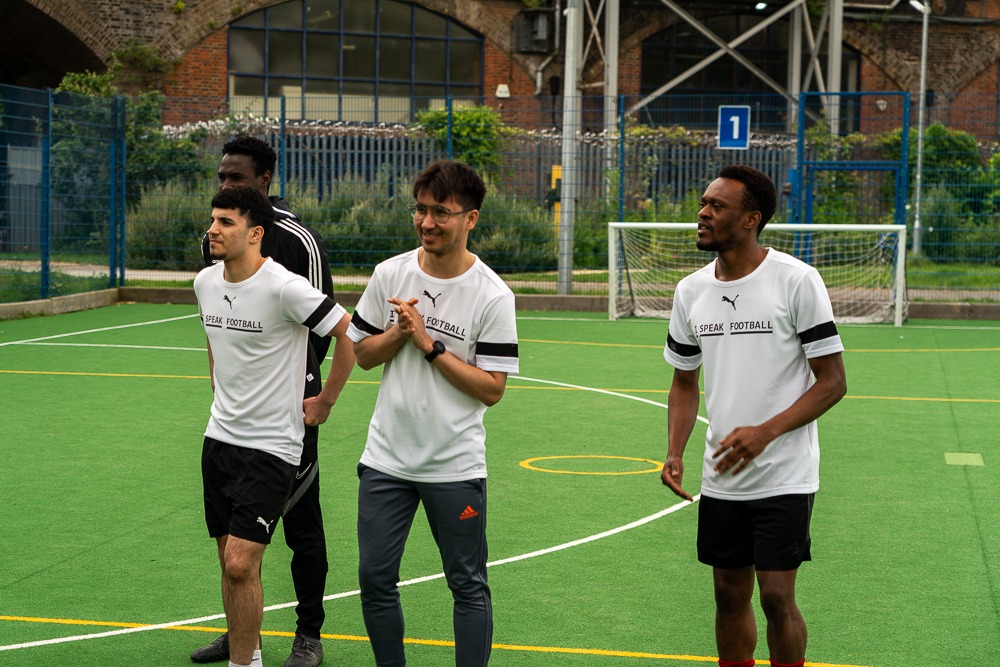 Bonito: How important are partnerships to a program like yours? local communities, mental health experts, language teachers- it feels like you need to have a really wide ranging team?
Bonito: How important are partnerships to a program like yours? local communities, mental health experts, language teachers- it feels like you need to have a really wide ranging team?